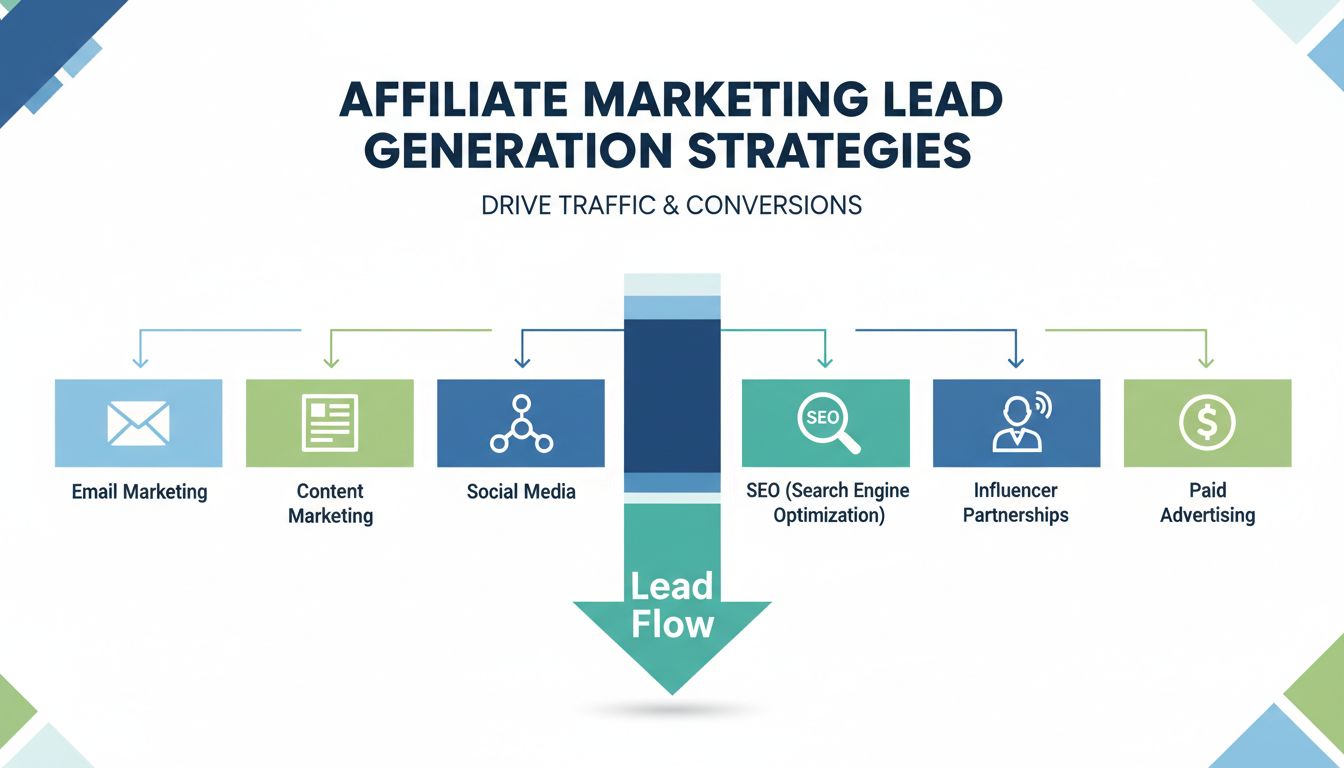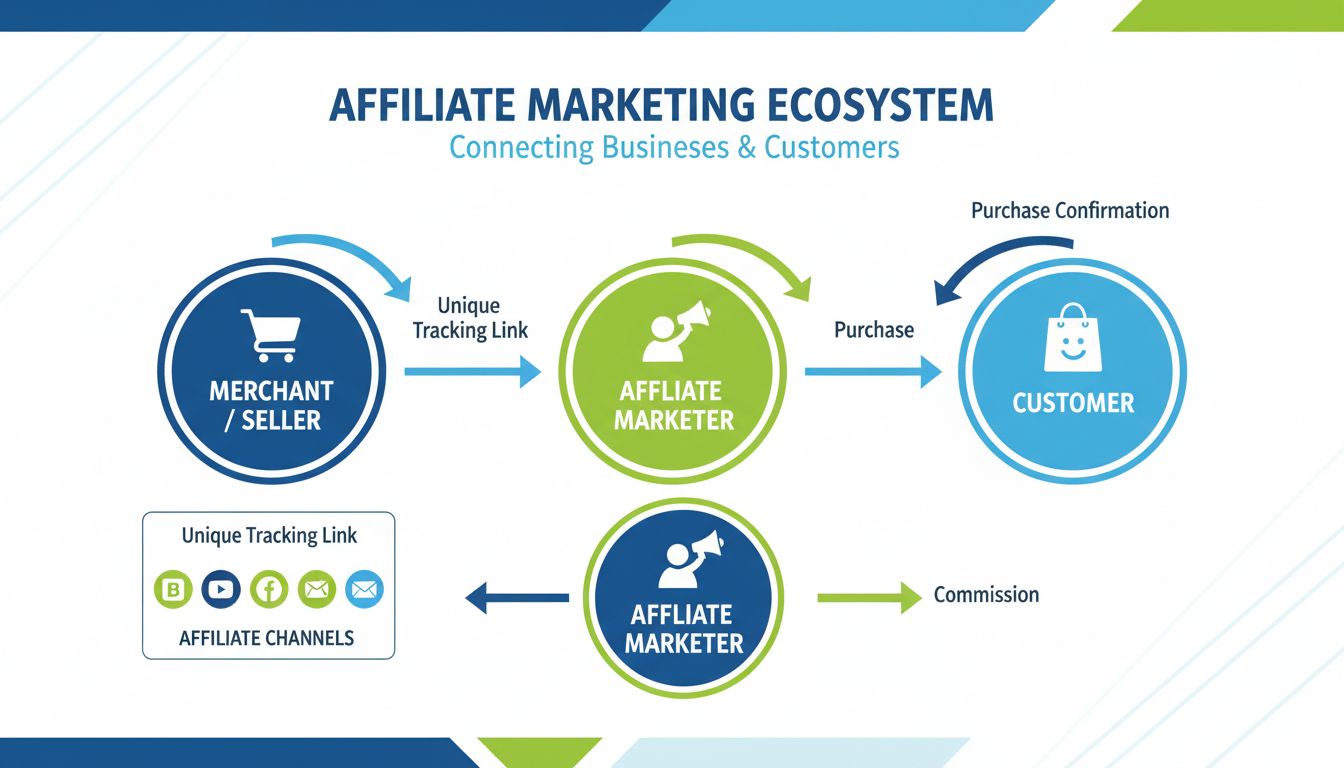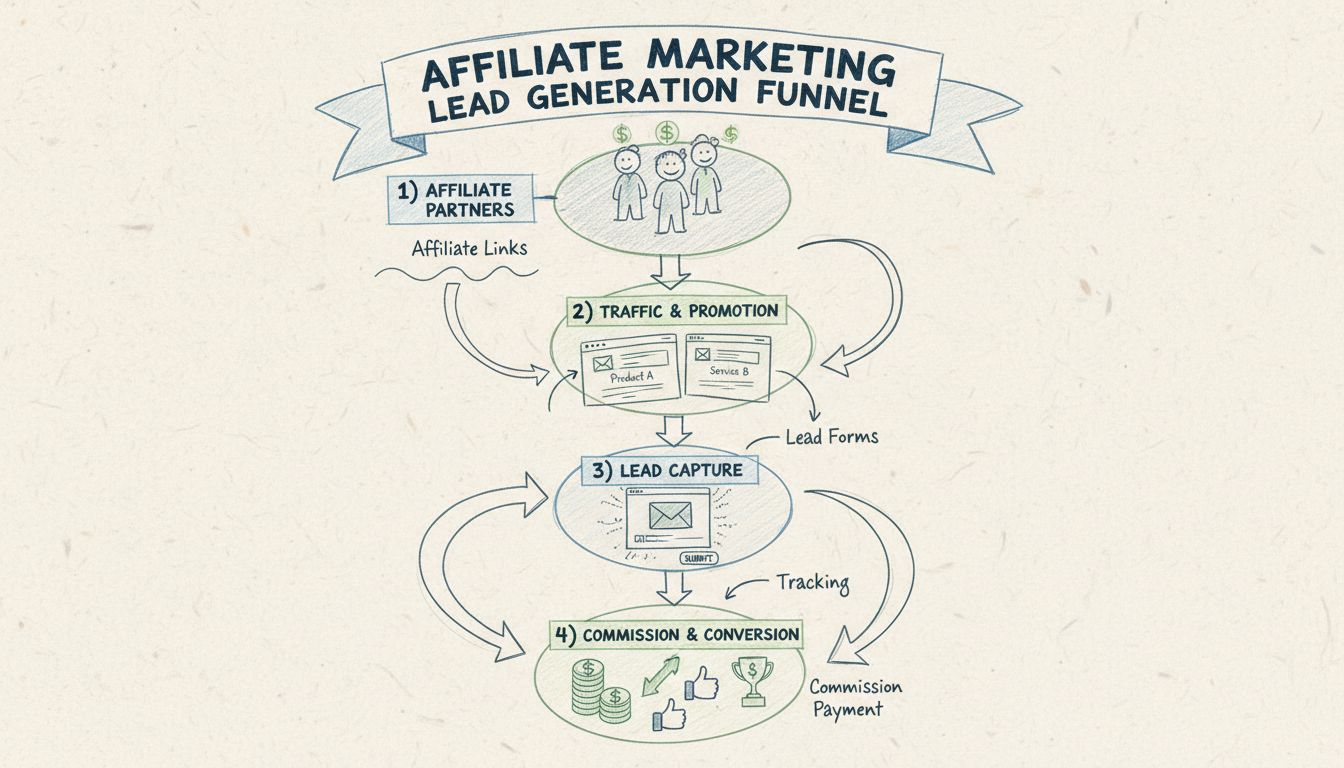
How to Generate Leads with Affiliate Marketing
Learn proven lead generation strategies for affiliate marketing including content marketing, SEO, email campaigns, and social media tactics. Discover how to bui...
A lead in affiliate marketing is a prospective customer who expresses interest in a product or service through an action, such as signing up or filling out a form, earning affiliates a commission.
In the realm of affiliate marketing , a lead is essentially a prospective customer who has expressed interest in a product or service through an interaction facilitated by an affiliate . This interaction can range from a simple action like clicking on a referral link to more complex actions such as filling out a form with personal information. Affiliates play a pivotal role in generating these leads by promoting merchants’ products and services on their platforms, including blogs, websites, or social media channels, ultimately directing interested users to the merchant’s site.
Affiliate marketing is a performance-based marketing strategy where affiliates earn a commission for every lead they generate or sale they facilitate. The process involves three main parties: the seller or merchant, the affiliate or publisher, and the consumer. The merchant provides the products or services, the affiliate markets them, and the consumer takes action based on the affiliate’s promotion.
Leads hold significant importance in affiliate marketing for several reasons:
Purple Carrot, a plant-based meal delivery service, successfully used lead generation affiliate marketing to expand its customer base. By partnering with content creators who shared their brand values, Purple Carrot was able to reach new audiences and offer custom rewards through an affiliate platform . This strategic approach led to a 68% increase in orders within one quarter, demonstrating the power of well-executed affiliate marketing campaigns .
Brand Hosted Model: Potential customers fill out forms on the merchant’s site after following an affiliate link . This model allows merchants to maintain control over the lead data and evaluate lead quality directly, ensuring they receive high-value prospects.
Host and Post Model: In this model, affiliates collect lead information on their platforms and sell these leads to merchants. This approach gives affiliates control over the initial interaction and allows them to pre-qualify leads before passing them on to merchants.
As the digital landscape continues to evolve, lead generation in affiliate marketing will grow in importance. The integration of advanced technologies like artificial intelligence (AI) and machine learning can enhance lead generation strategies, making them more efficient and targeted. These technologies can analyze vast amounts of data to identify patterns and predict customer behavior, allowing for more personalized marketing approaches.
Additionally, as privacy regulations become stricter, affiliates and merchants must prioritize ethical lead generation practices to maintain trust and compliance. Transparency and data protection will be key in building long-lasting relationships with customers.
In conclusion, understanding and effectively managing leads is crucial for success in affiliate marketing. Through strategic partnerships and targeted marketing efforts, affiliates can generate high-quality leads that drive revenue and foster long-term relationships between merchants and customers. By staying informed about industry trends and leveraging new technologies, businesses can stay ahead of the competition and achieve sustainable growth.
The pay per lead model works by rewarding affiliates for each lead they generate. Leads are defined by the merchant, and can be things like signing up for a newsletter or filling up a form.
Yes, affiliate marketing can be a lead generation tool if used correctly. Affiliates can drive traffic to your website or landing page and generate leads through their efforts.
Some methods for generating leads include creating compelling content, developing a strong social media presence, and using effective search engine optimization techniques.
Discover how generating high-quality leads can maximize your affiliate marketing revenue. Start leveraging proven strategies and advanced tools today.

Learn proven lead generation strategies for affiliate marketing including content marketing, SEO, email campaigns, and social media tactics. Discover how to bui...

Learn what affiliate marketers do, how they earn commissions, and why PostAffiliatePro is the top platform for managing affiliate programs. Comprehensive guide ...

Discover how affiliate marketing functions as a powerful lead generation tool. Learn about CPA models, affiliate partnerships, and proven strategies to generate...
Cookie Consent
We use cookies to enhance your browsing experience and analyze our traffic. See our privacy policy.